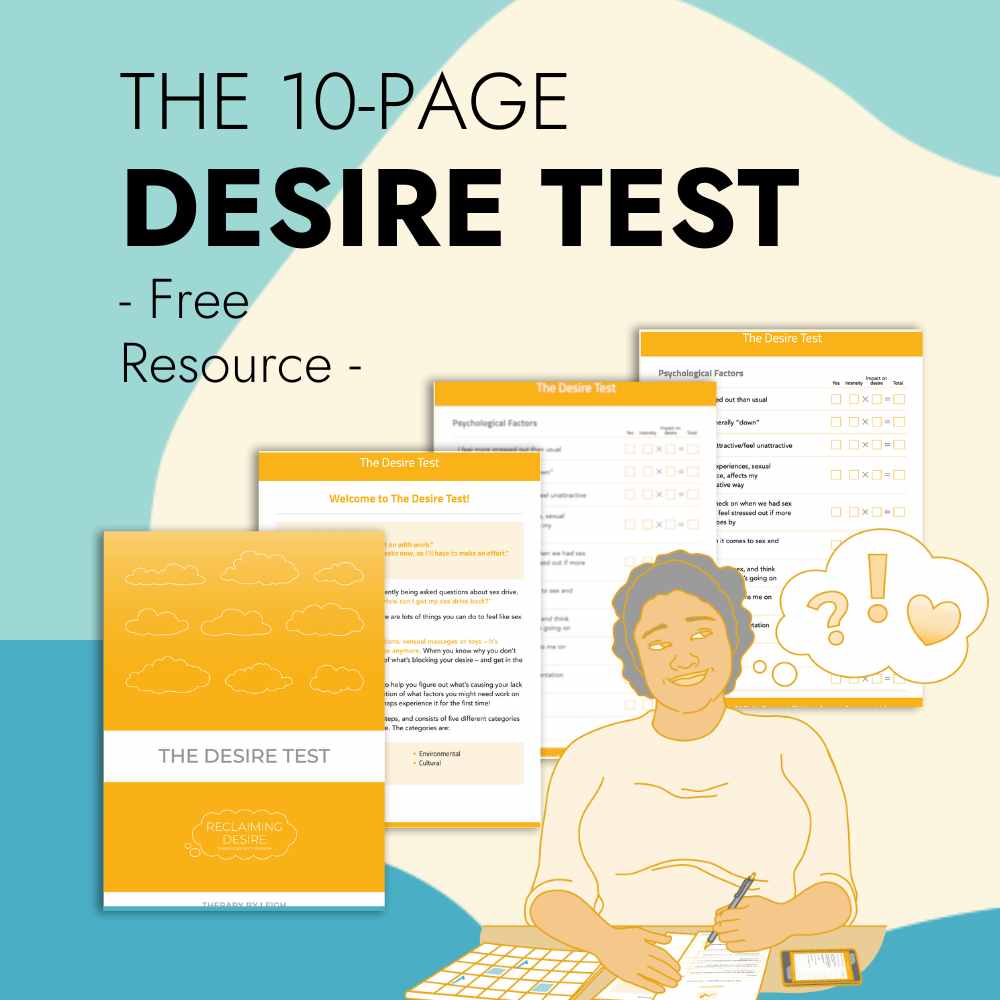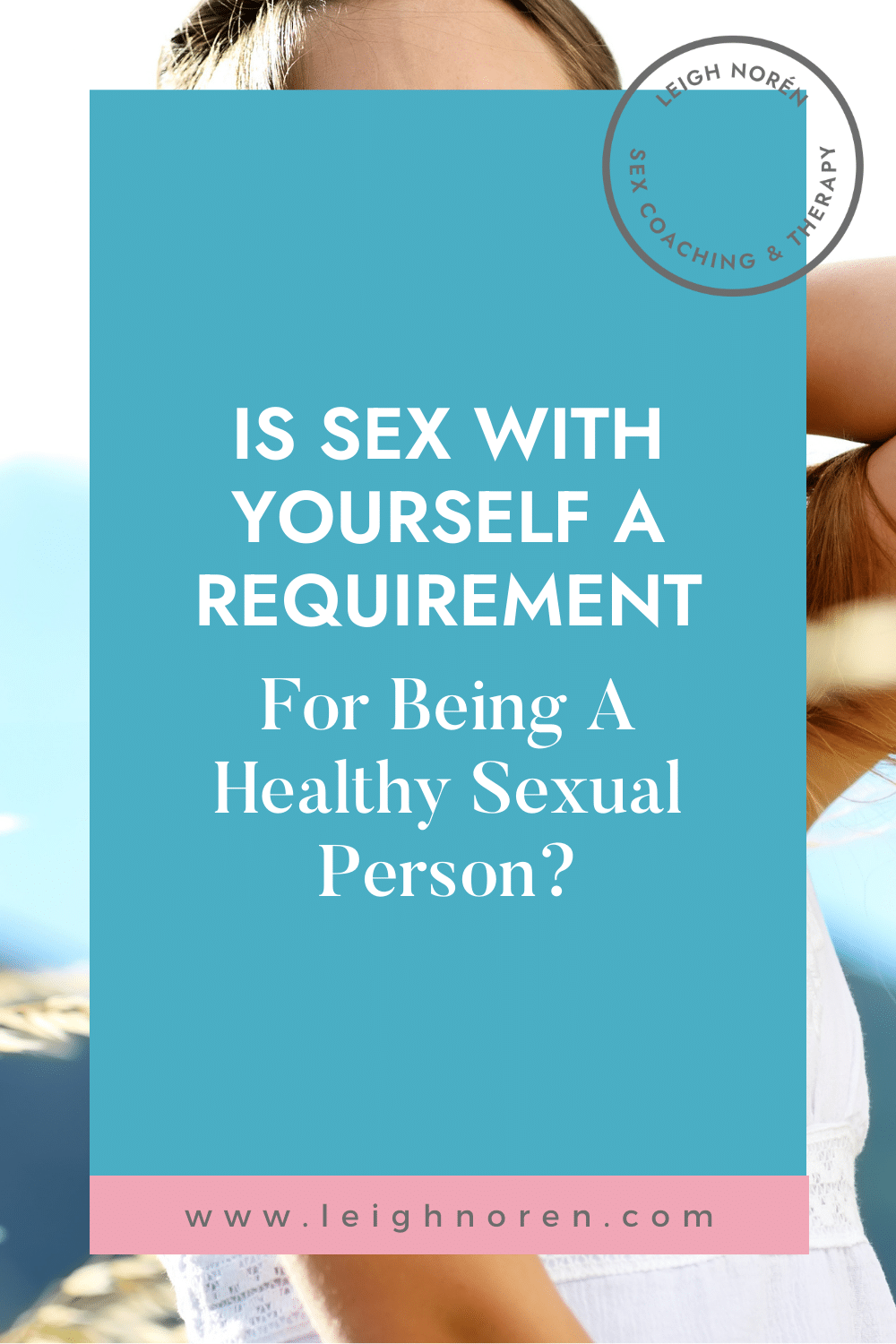Is Sex With Yourself A Requirement For Being A Healthy Sexual Person?
5 min read
Ever wondered if there’s something wrong with you for not masturbating? As a sex therapist, this is quite a common topic with my clients. Oftentimes, these conversations centre on people’s deep desires to be and feel “normal”. And this makes complete sense – we all want to feel like we’re sexually healthy, right? But the thing is – it isn’t necessarily important. What is important is being comfortable with who you are, sexually. And sex with yourself can be a great way of getting there.
If you’re wondering whether you should be masturbating to be considered healthy – here’s what you need to know.
To Masturbate Or Not To Masturbate
First off – let’s address one of the most important things when considering whether or not you “should” be having sex with yourself: Do you even want to?
Consent isn’t just about partnered experiences, it’s about solo ones, too. So, just as you shouldn’t have sex with a partner if you don’t want to – you shouldn’t masturbate if you don’t feel like it either.
If the answer is yes, I want to pleasure myself – by all means, go for it! But if the answer is no, you might want to consider why that is.
Sometimes, our relationship with solo sex dates back to what our parents explicitly or inadvertently taught us about sex. We might have picked up on clues that we shouldn’t have touched ourselves there. If we identify as women, we might even have picked up on society’s double standards regarding women: we should be sexy, not sexual.
Other times, we’re nervous our lack of solo sex is having a negative impact on our partnered sexual experiences. We believe we’re not good enough lovers or that we’re not adventurous enough. Whatever the reason – digging a little deeper here is crucial.
When Masturbation Makes You Feel Uncomfortable
If you avoid masturbation as it makes you feel dirty – you might want to reconsider it.
You see, our sexuality is a deeply ingrained part of ourselves. This means our general well-being affects our sexuality, and our sexuality affects our general well-being. How we are with others sexually, and how we are (or aren’t) with ourselves, sexually, gives us clues as to how we feel about our sexuality.
And in order to have better sexual experiences (with or without partners) – we need to work through these feelings.
If you truly feel you’re worthy of pleasure – chances are you have a more positive relationship with masturbation.
If you have conflicting feelings about it – don’t worry – you’re definitely not alone.
People who identify as women, especially, often experience shame and embarrassment surrounding self-pleasure. One way of combating these feelings is by doing a deep dive into all the reasons having masturbating could benefit you.
Not because you should be masturbating to be considered sexually healthy – but because you deserve sexual pleasure. Just as much as anyone else.
WANT YOUR SEX DRIVE BACK?

My free resource The Desire Test helps you take that first step towards an increased sex drive, by understanding your decreased desire.
Take the 10-page assessment quiz, get the answers you need to understand what’s standing in the way of your desire, and get free sex and relationship tips directly to your inbox. You can unsubscribe at any time.
5 Reasons Sex With Yourself Can Be Beneficial
You Learn What Techniques You Like
Exploring self-pleasure is a great route to understanding what kinds of physical stimulation you enjoy. Once you know:
- What kinds of pressure you enjoy
- What areas you prefer to be stimulated
- Whether you want or need several areas to be stimulated at once
You’ll be able to bring this knowledge into the bedroom with your partner. This means better sex – which can also lead to increased desire. You can read more about this in my blog post; why has my sexual desire increased?
You Get Acquainted With Your Fantasies And Turn-ons
When you masturbate it can sometimes be easier to explore more taboo fantasies and ideas. After all, you don’t need to explain to anyone what you want or why you’re interested in a particular idea. You can simply explore it without going on a hunt for deep-seated psychological reasons.
Another positive about masturbating, is that it helps you work out what gets you going.
Because you naturally deviate to the things that you really enjoy when you’re on your own. No pleasing your partner or anyone else – it’s just you and yourself, experiencing pleasure.
You Understand What Your Dislikes Are
Just as knowing what turns you on is important – it’s equally as important to understand what doesn’t get you going. In order to have great sex with yourself and someone else, knowing what turns you off is key.
For example, knowing that:
- A particular move turns you off
- Sex with the lights off does nothing for you
- Hearing your children playing in the background is a big no-no for your desire and arousal
– are all really important pieces of information when considering when to have sex and what kinds of sex to have.
Without this crucial information, you might believe you’re struggling with low or no sex drive, when in actual fact, there are small tweaks that can be made in order to experience more desire and more pleasure.
You Get To Know Your Boundaries
Having solo sex is an exploration of all of you. Not only does it teach you what your likes and dislikes are – it’s also really informative of your boundaries. These might be boundaries pertaining to certain sexual fantasies, but also to certain areas of your body that you don’t want touched.
By masturbating, you get to explore these boundaries in a safe environment, free from the fear of judgment of others. This way, you can test things and react to what your body and mind are telling you, instead of thinking of your partner and how they would feel about it.
Once you understand your boundaries, you’ll be able to communicate them more easily during partnered sex.
Increases Your General Well-Being
After reading this list, it would be easy to assume masturbation is mostly beneficial to your partnered sex life. But in actual fact – masturbation is good for you in its own right. Masturbation can:
- Decrease stress through the release of feel-good-hormones
- Make us feel happier in general
- Help us feel empowered in our sexuality and thus in ourselves as a whole
Knowing your body, and connecting with your sexuality can have this positive ripple-like effect on your general self-confidence and self-esteem. Why? Because giving yourself pleasure is telling yourself you’re worthy of pleasure. And feeling worthy does wonders for our confidence.
Is Sex With Yourself A Requirement?
While sex with yourself can be wonderful for many reasons; to improve your general well-being and to have better sex – it is not a requirement to be sexually healthy. Your sexuality is not a measurement of how “normal” you are – its existence is based on pleasure. And how you want to experience that pleasure – is completely up to you.
Want more help with enjoying sex and feeling more desire? The first step is to understand what’s standing in your way. Download my free resource, The Desire Test, to get the answers to this question. Based on sexological science and my extensive experience as a therapist and coach, it lets you know what you need to work on in order to start loving sex again.

(and what to do about it)
Get instant access to expert advice, delivered directly to your inbox when you download The Desire Test.
Unsubscribe anytime.
With 8 years of experience as a sex therapist and coach - Leigh helps her clients create stress-free, shame-free, pressure-free sex lives, through her unique combination of sexological science, & psychotherapeutic & coaching tools.
OTHER POSTS YOU MIGHT ENJOY
Copyright © 2019-2024 Leigh Norén. All Rights Reserved. | Website by Pinegate Road
Cookie policy | Terms & Conditions | Privacy Policy


